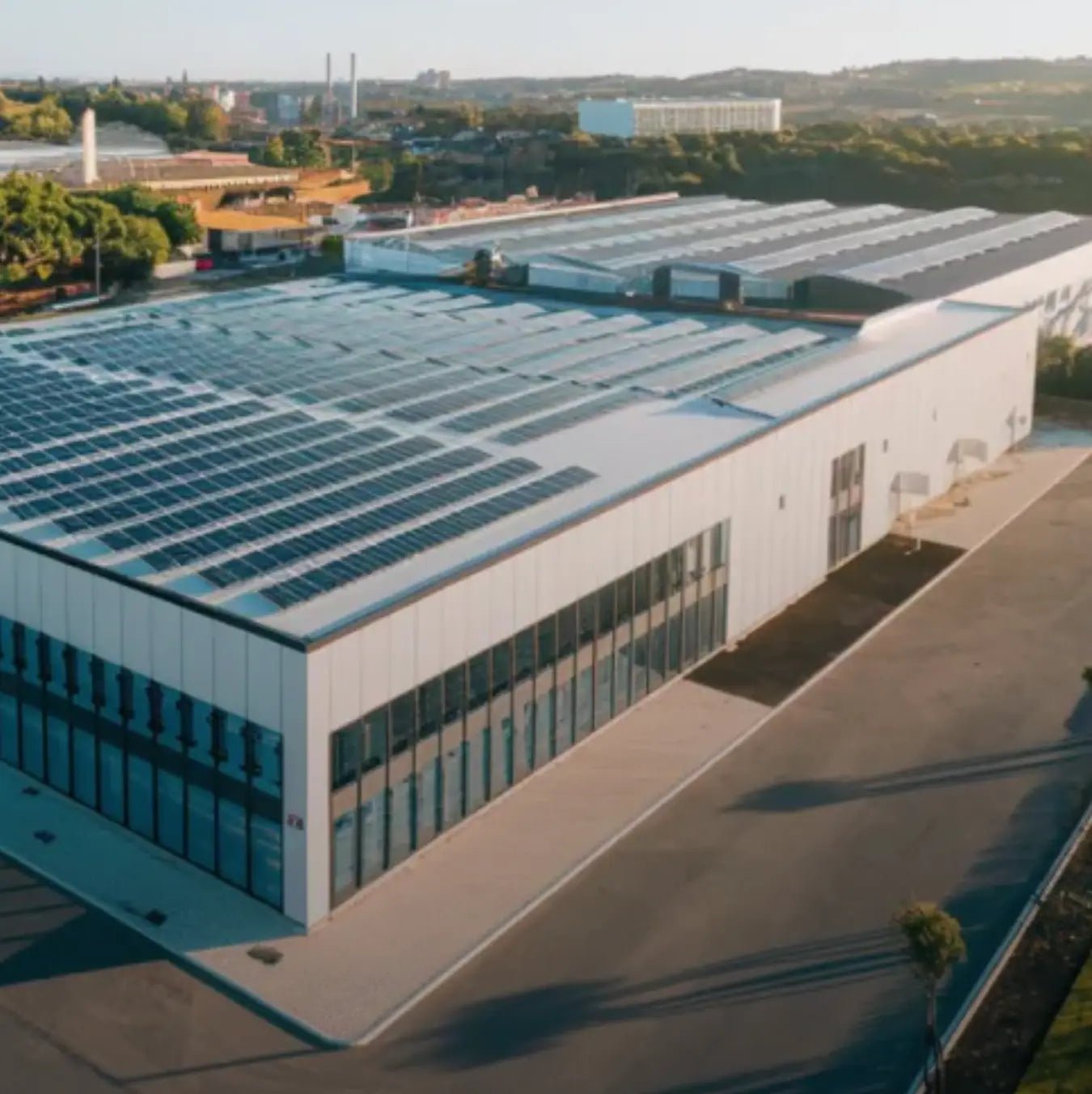
The Definitive Guide to Low MOQ, Premium Apparel Manufacturing in Portugal (2025)
Portugal has emerged as a textile powerhouse, offering a rare blend of premium quality, ethical labor, and the crucial flexibility of **Low MOQ (Minimum Order Quantity)** production. This reputation, built on centuries of textile expertise in the regions of Porto and Guimarães, positions Portugal as the definitive alternative to high-risk overseas sourcing models.
The Portugal Advantage: Why European Manufacturing Wins
For fashion brands seeking reliable, high-quality production partners, Portugal is a strategic destination. It offers a transparent, low-risk environment that is highly favored by high-end luxury brands, growing streetwear labels, and sustainable startups alike.
Ethical and Regulatory Excellence
As a European Union (EU) member, Portugal ensures **ethical manufacturing** through strict labor laws, fair wages, and optimal working conditions. This regulatory environment acts as a powerful barrier against the high social and environmental risks prevalent elsewhere.
- Full Regulatory Compliance: Avoids complications with regulations like the EU's General Product Safety Regulation (GPSR) and addresses the forthcoming **EU Forced Labor Ban** (currently under final approval, expected to come into force within the next few years).
- Sustainability Commitment: Manufacturers actively invest in eco-friendly practices like water recycling, low-impact dyes, and energy-efficient operations.
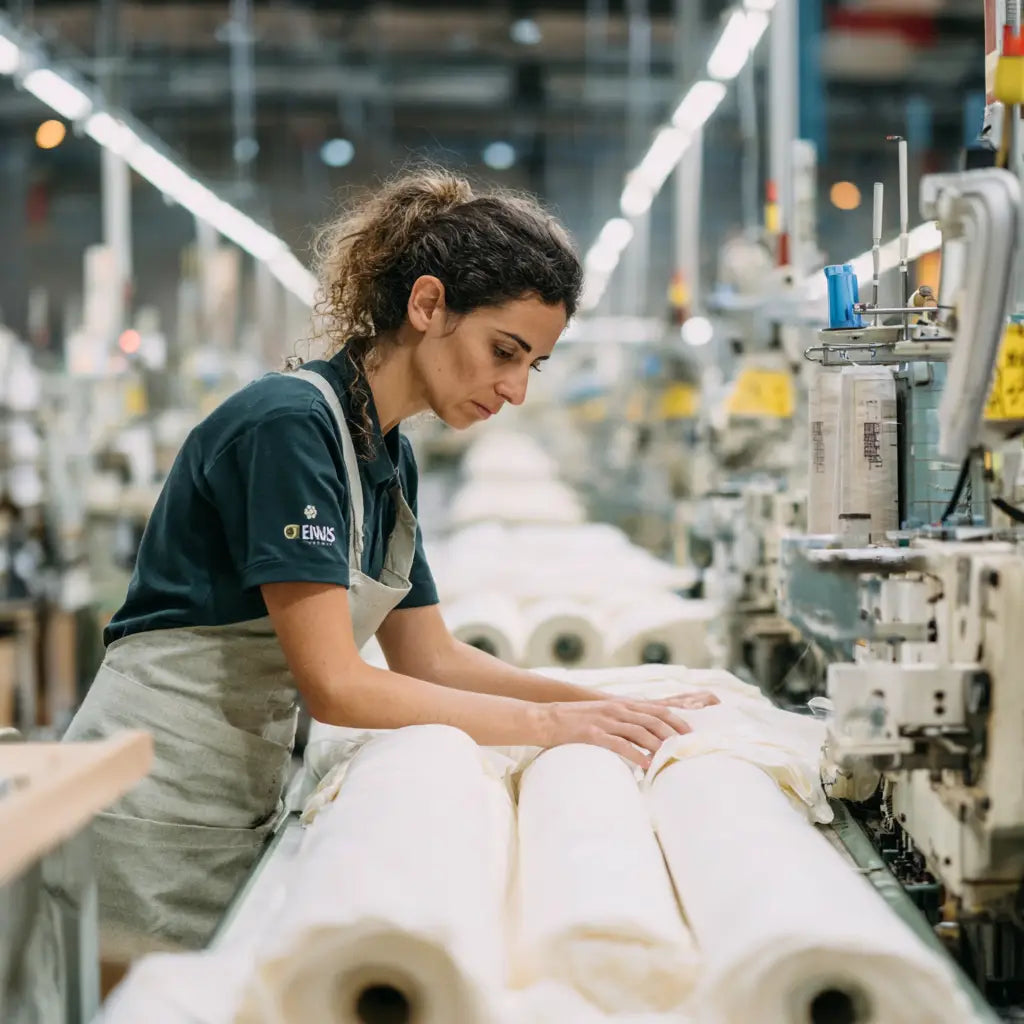
Speed and Logistics
Portugal offers a streamlined supply chain due to its robust infrastructure and geographical position.
- Rapid Transit: Shipping across Europe typically takes **3–5 days** (for parcels/small freight), and logistics to the US East Coast are significantly faster than from Asia.
- Vertical Integration: Many Portuguese facilities handle processes from knitting the yarn to the final stitching and finishing. This vertical control ensures maximum quality assurance (QA) and faster response times, minimizing the high defect rates common with fragmented supply chains.
The Low MOQ Revolution for Startups
The greatest barrier for new apparel founders is the high Minimum Order Quantity (MOQ) barrier, often set at 500–1,000+ units by large international factories. Portugal’s strength lies in its ecosystem of smaller, flexible, family-run facilities that specialize in low-volume orders.
Understanding the Fixed Cost Setup
Factories face high **setup costs** regardless of order size. These include creating the tech pack, translating patterns, calibrating machines, initial quality checks, and **pattern grading** (adjusting sizes from S to XXL). In Asia, these fixed costs are usually hidden within a high MOQ. In Portugal, they are transparently managed through specialized systems.
- Startup-Friendly MOQs: Ready-to-brand blanks, like those used at Athleisure Basics, offer entry-level access at **50–70 units per style**. True custom **cut-and-sew** apparel typically starts around **250–300 pieces per style**.
- Risk Mitigation: This flexibility allows new brands to test new products, colors, and concepts without committing capital to large, untested inventory pools.
The Avoided Costs of Quality
The perceived saving from a low-cost, high-MOQ source is often wiped out by hidden expenses you avoid with a premium supplier:
| Avoided Cost (Savings) | The Problem with Low-Cost Sourcing | The Premium Portugal Solution |
|---|---|---|
| High Returns & Refunds | High rates of defects and poor sizing consistency mean returns **can exceed the industry average of 15–20%**. | Pre-Vetted Networks: Partners prioritize quality assurance protocols, **ensuring far greater consistency** in material weights, stitching, and sizing across batches. |
| Lost Inventory/Dead Stock | Forced to buy 1,000+ units, leaving hundreds unsold if the product flops. | Low MOQs mean you produce only what you sell, freeing up cash flow for marketing. |
| Logistical Nightmare | Costly and complex returns from overseas are often financially prohibitive, with sea freight typically taking **10–21 days (2–3 weeks)**, depending on route and customs. | Transparent, compliant shipping and superior QA eliminate the reliance on costly, complex international dispute processes. |
The Perils of Overseas Sourcing: A Costly Lesson in Risk
The cautionary tales of trying to replicate success by chasing the manufacturers behind major brands (like Represent or Fear of God Essentials) often lead to months of wasted effort and bad products. Large manufacturers refuse low-volume clients due to high fixed costs and a lack of proven track record.

(For a complete breakdown of why chasing luxury brand manufacturers and using wholesale platforms fails, see our detailed article: The Truth About Sourcing: Why Chasing Represent's Manufacturer (or Alibaba) Will Fail Your Brand)
Defining Premium: Fabric Technology and Compliance
Quality in the **private label streetwear** and **athleisure** market is dictated by technical standards, not marketing. Portuguese manufacturing excels in materials science and rigorous quality control.
Sustainable Material Certifications
Reliable material sourcing requires verifiable proof. These certifications are your assurance of quality and ethical sourcing:
- GOTS (Global Organic Textile Standard): The leading standard for textiles made from organic fibers. It covers the entire supply chain, prohibiting the use of harmful pesticides and ensuring ecological and social criteria are met from farm to factory.
- OEKO-TEX® Standard 100: Certifies textiles are tested and verified free from harmful substances at every stage of production. This certification is crucial for materials coming into the EU and the US market.
The Science of Structure: GSM and Performance
Fabric construction determines durability, drape, and perceived luxury. When sourcing for your collection, focus on these metrics:
- GSM (Grams per Square Meter): This metric measures fabric density. Premium hoodies often fall into the **Heavyweight** category of **400–450 GSM**. Luxury blanks may target **450+ GSM** for ultimate structure.
- 3-End Fleece Construction: This advanced knitting technique uses three yarns instead of the standard two, creating a loftier, thicker fabric. While a **strong indicator of premium quality**, brands also rely on high-grade French Terry and loopback materials for performance. (For a technical deep dive into material science, read: Defining Premium Quality: GSM, 3-End Fleece, and Fabric Selection for Luxury Blanks)
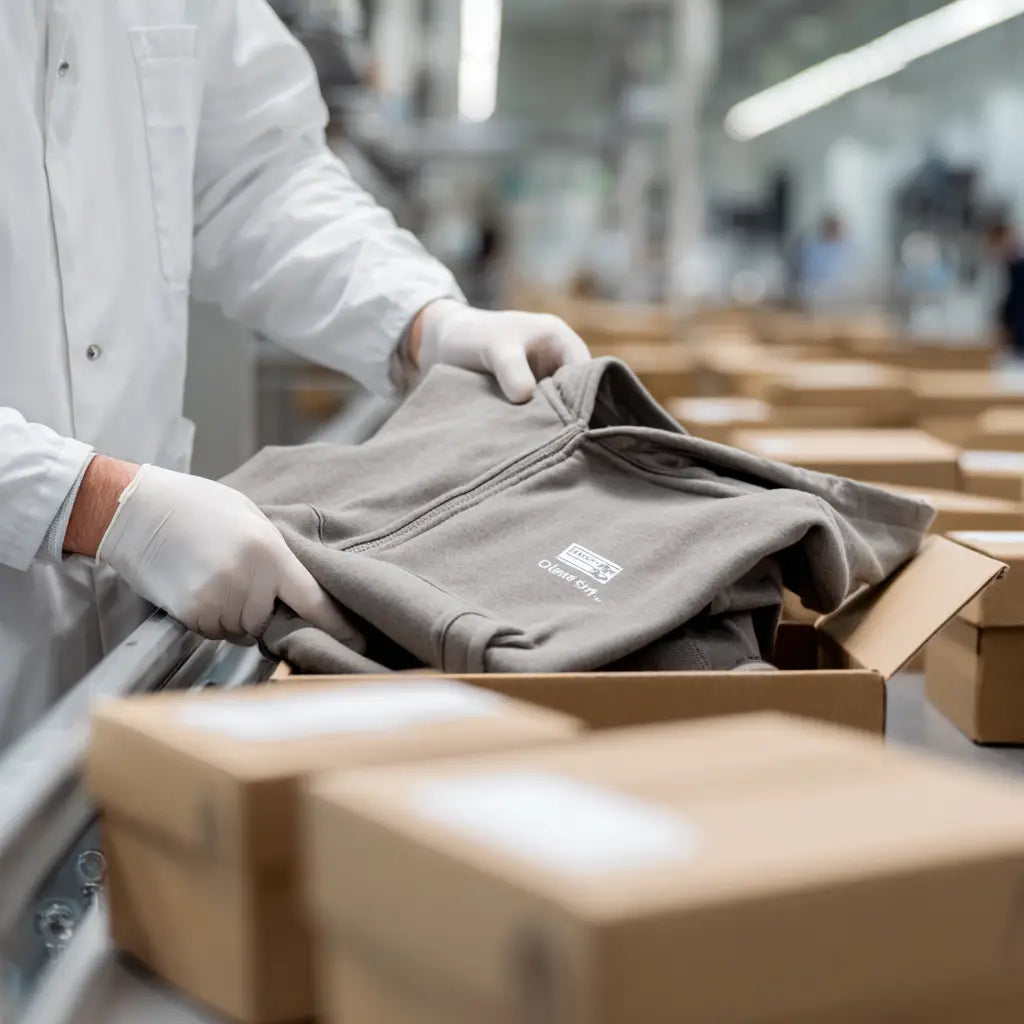
Seamless Integration to Your Product Line
The versatility of the Portuguese network allows you to build a full, complementary collection:
- Source performance knits and technical fabric blends for your activewear, including leggings and technical joggers.
- Design structured **oversized T-shirts** and minimalist tops (explore our T-shirt blanks) using high-GSM organic cotton for superior shape retention.
Frequently Asked Questions (FAQ)
-
What is the difference between white label blanks and custom cut-and-sew?
White label blanks are pre-made garments ready for your logo (low MOQ: 50–70 pcs). Custom **cut-and-sew** involves creating an item entirely from scratch based on your design (higher MOQ: 250–300 pcs).
-
What is the typical lead time for an order from Portugal?
The average production time for standard orders is typically 4–6 weeks after sample approval. White label blanks can sometimes ship faster (3–5 weeks).
-
How fast is shipping to the USA and Europe?
Shipping within the EU takes 3–5 days. For the US, express air freight is fast, but slower bulk cargo (sea freight) can take 10–21 days, not including production time.
-
What is the minimum order quantity (MOQ) for custom developments?
For fully custom **cut-and-sew** apparel, MOQs usually start around 250–300 pieces per style.
-
Which materials are used for sustainable production?
Sustainable options include OEKO-TEX® certified materials, GOTS-certified organic cotton, and recycled blends derived from polyester.
-
Can I mix sizes and colors in one order?
Yes, most manufacturers allow mixing sizes and colors within your order to accommodate your initial inventory needs, although conditions may vary by factory and product type.

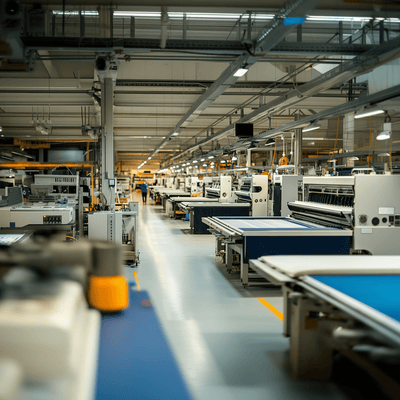
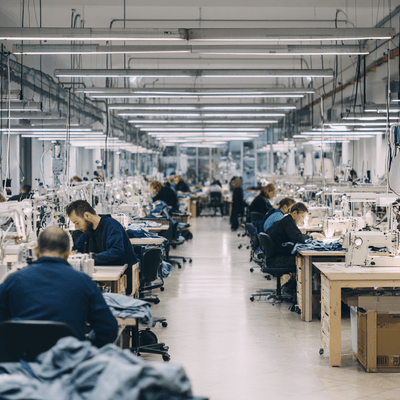
2 comments
Great insights on low MOQ premium apparel manufacturing in Portugal! The focus on flexible production quantities and ethical, high-quality craftsmanship really highlights why startups and emerging brands value this model. I especially appreciated the discussion around reduced risks from overstock and faster logistics compared to overseas alternatives. A useful read for anyone exploring sustainable small-batch production.
Aeempire
Hi
I want to start own athleisure elevated hero pieces starting from from core top n bottom
What white label styles you can offer in modal jersey that’s super-soft and has good stretch and shape retention.
I m available to talk today from 12 GMT
Thanjs
Aparna Jain
Leave a comment
This site is protected by hCaptcha and the hCaptcha Privacy Policy and Terms of Service apply.